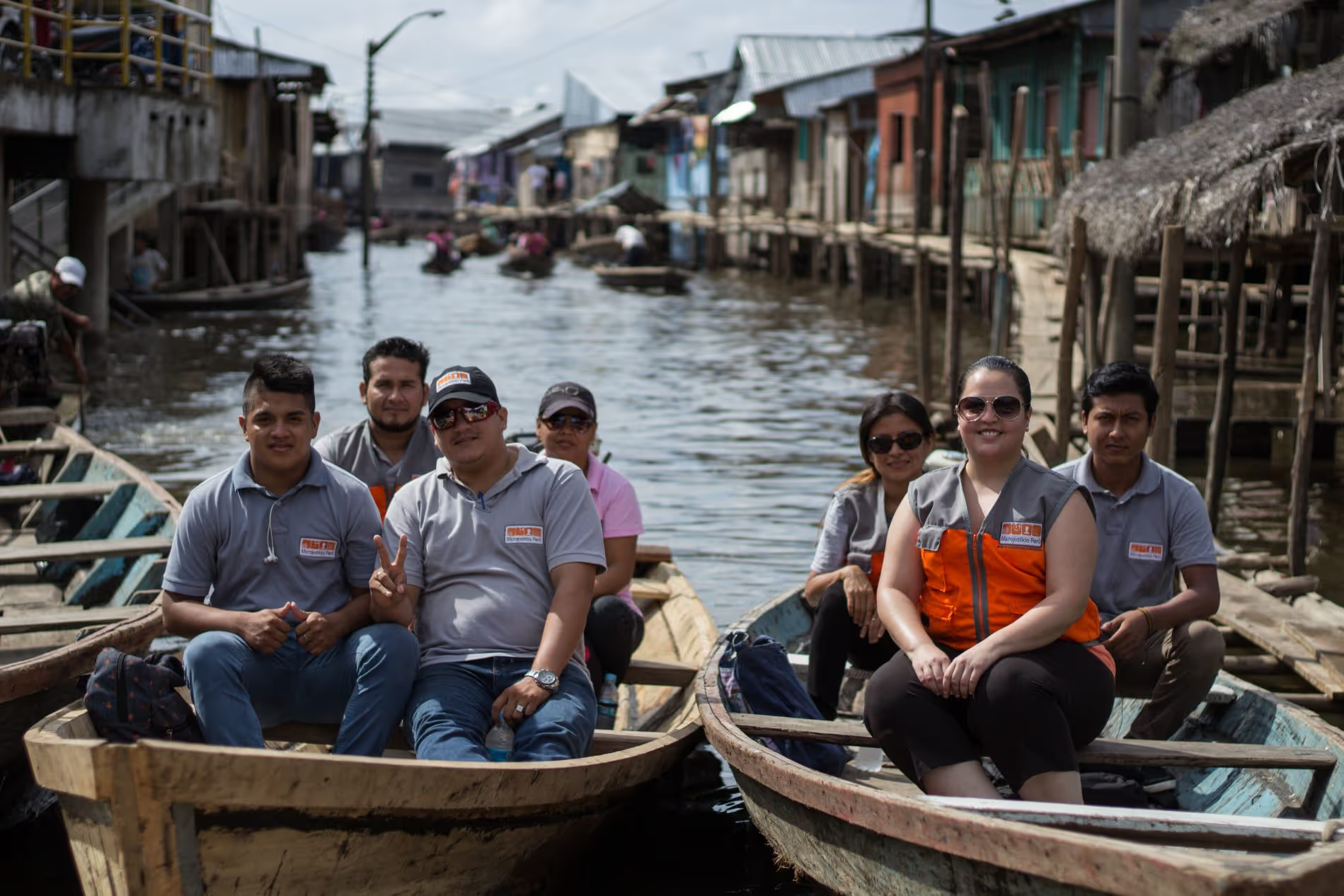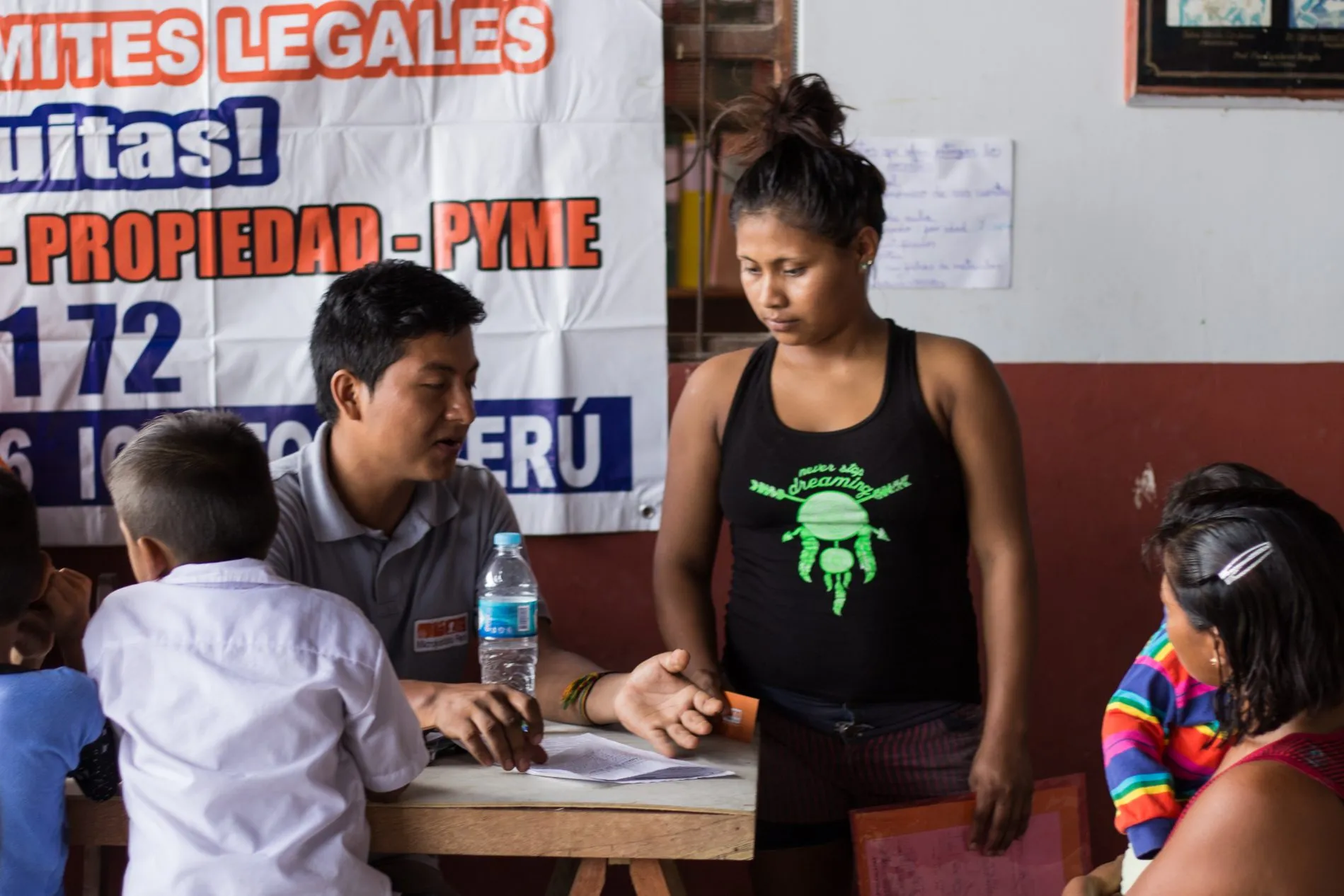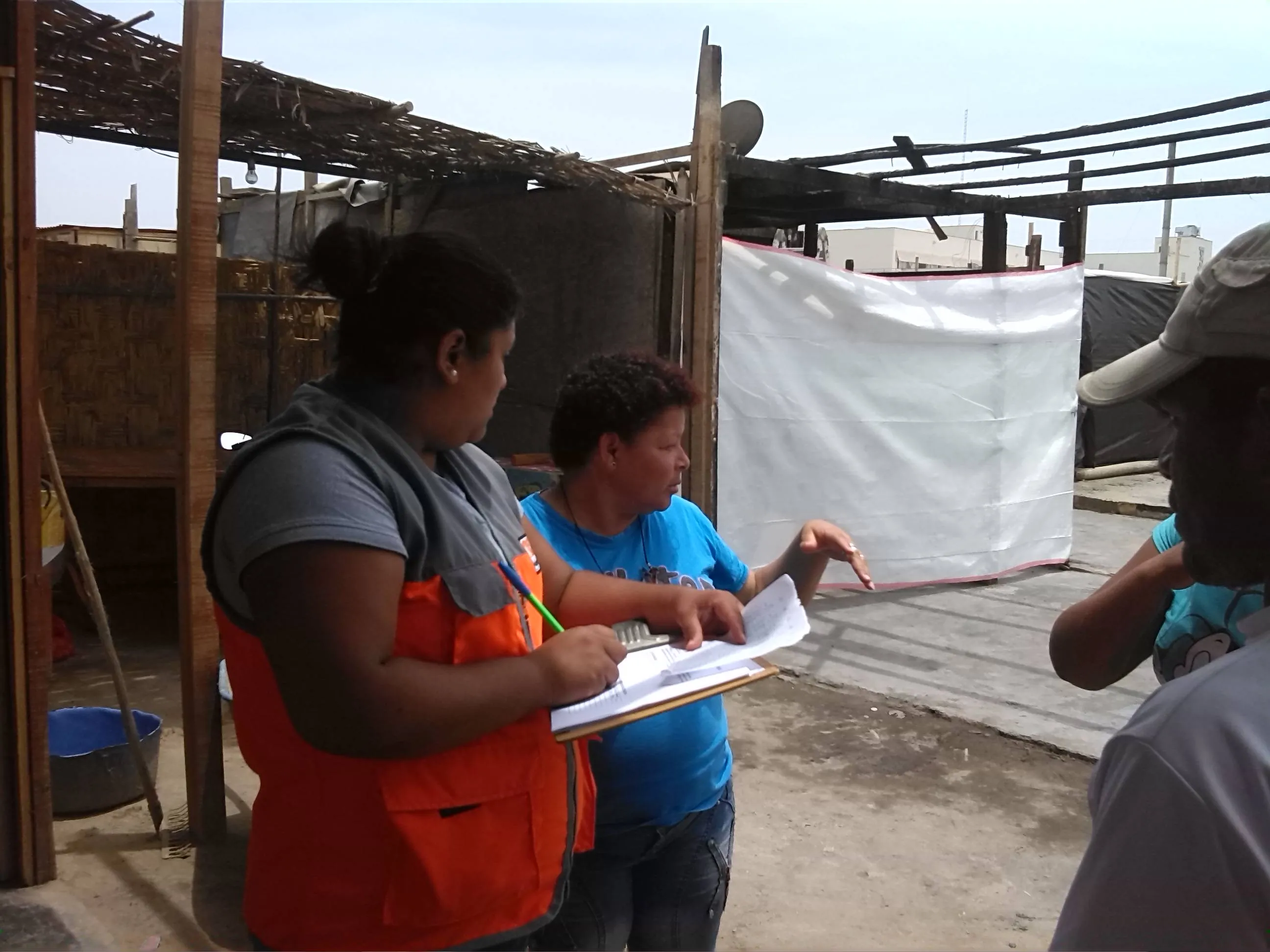Lessons on legal service delivery from the Amazon and Pisco, Perú
18
August
2016
Type
Grantee insights
Area of funding
Humanitarian Innovation
Focus areas
No items found.
Year

When MJ4All and Microjusticia Perú (MJP) designed the project we planned setting-up 6 legal clinics as legal service delivery points as we do in our regular work. A legal clinic is a strategically located space that a partner organization provides us where we establish an attention schedule and people can come and received legal advice and practical assistance.
In post-emergency contexts our work needed to be more flexible than ever. Some of the most relevant lessons to adapt our service delivery work in both project locations (Pisco, a post-earthquake context at the coast and Iquitos, a post-flooding context in the Amazon rainforest) are:
Identify the right time to start the provision of legal rehabilitation services:
At the start of the project we did a baseline study in Pisco, specifically the human settlement of Juan Vergara Matta). Then this area was hit by a major fire in February, which destroyed more than 100 houses. Having recently developed a new “quick legal scan tool” to identify the legal needs of the people affected by the fire, we went in immediately after the fire was contained to test out method. However, in Juan Vergara Matta no-one paid attention to our services in the first week as everybody was focused on getting food, tents and other humanitarian kits.
As soon they knew we were helping with (re)obtaining legal papers people lost interest. We kept crucial contacts and one week after the fire we coordinated with our contacts and went back. This time people welcomed us because they were concerned with re-obtaining their identity papers to reestablish their lives and get their governmental health insurance card (SIS) to get to free health attention.
Permanent legal clinics vs. mobile legal campaigns:
We successfully set up the main legal clinics in the Red Cross offices in Pisco (Ica) and Iquitos (Loreto). These legal clinics also function as local program offices where the team makes the planning and updates the project information and cases files. Also, one legal facilitator provides legal orientation to the population in general from these main legal clinics.
When we tried to set up more permanent legal clinics we faced different issues that make us re-think our strategy: (i) flood areas are difficult – if not impossible – to enter (ii) the affected population is not always in the shelters (iii) in the rehabilitation phase, the affected population usually lives in peri-urban areas, so they are outside their communities during the day (working, studying).
We needed to adapt our legal service distribution to their availability and the changing context and starting working with mobile legal clinics. Before going into an area with a legal campaign or a mobile legal clinic we always coordinate with the local leaders and usually we inform the general population through local media, including TV and Radio.
When our team is in the field or on the river, 2 legal facilitators are in the campaign location and 2-3 go door to door raising awareness about the importance of having basic legal papers and to identify the legal issues individual families are facing.
Establishment of a legal service distribution network:
In our methodology we always have established strategic relationships with partners for reaching more people. For post-emergency legal rehabilitation, we do the same with the difference than our main partners work in humanitarian response. One of our main strategic partners is the Red Cross. They invited us to their fairs, workshops and campaigns to provide legal support to their target groups. We also participated in their baseline study in Iquitos to identify people who lack identity papers.
Additionally, we collaborate with local NGOs, churches and governmental organizations that refer their beneficiaries who don’t have basic legal documents to our legal clinics.
In Pisco we are the only organization that provides support in obtaining or correcting land titles. Earthquake victims, especially low income and middle-to-low income families, need their identity papers and their land title to access different programs of the Housing Ministry. When the Housing Ministry identified potential beneficiaries without any of the required legal papers, they send them to our office and notify us via e-mail.
In Iquitos, one of our main partners is the National Registry of Identification and Civil Status (RENIEC). We coordinate with the office for Restitution of Identity and Social Support (GRIAS). As we can be more flexible with time and dates to go to the flooded and vulnerable areas, GRIAS has started subsidizing the cases we bring to them. They have also introduced more flexibility with regards to requirements and help us to obtain birth certificates from remote areas outside Iquitos.
The experience in these post-emergency contexts is being developed into a coherent post-emergency legal rehabilitation methodology and much more will be included in the MJ4All Legal Rehabilitation Handbook and Toolkits.
Estela García
MJP Director
No items found.
Stay updated
Sign up for our newsletter to receive regular updates on resources, news, and insights like this. Don’t miss out on important information that can help you stay informed and engaged.
Explore Elrha
Learn more about our mission, the organisations we support, and the resources we provide to drive research and innovation in humanitarian response.




.png)